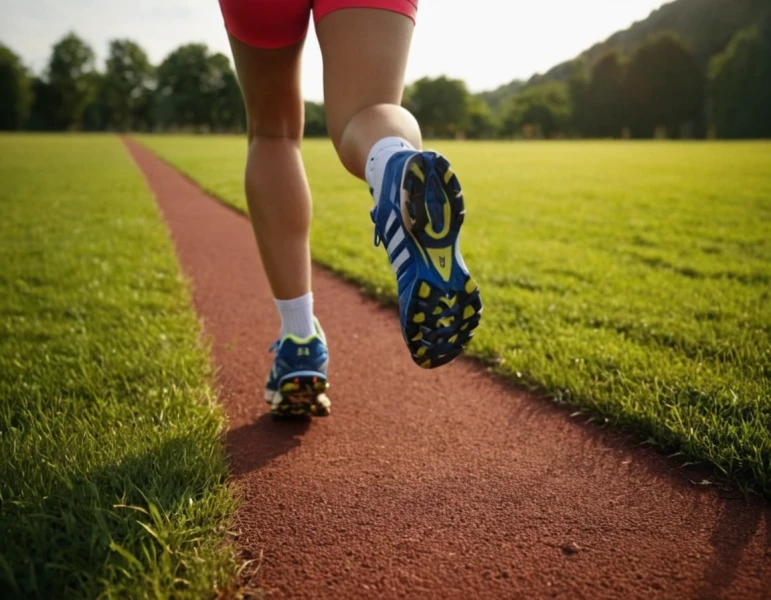Educa UNIVERSITY|SCIENCE AND ENGINEERING
Physical Activity and Sport Sciences: An Experiential Perspective.
Physical Activity and Sport Sciences: An Experiential Perspective.
Hello! I'm Rubén Águila, and today I want to talk to you about a subject that I am deeply passionate about: Physical Activity and Sport Sciences. Throughout my life, I have had the opportunity to immerse myself in this fascinating field, and I want to share with you my experiences, knowledge and reflections.
What are Physical Activity and Sport Sciences?
Physical Activity and Sport Sciences is an academic discipline that studies human movement and its impact on health, performance and quality of life. This field ranges from physical education in schools to the training of elite athletes to the promotion of healthy lifestyles in the general population.
My Immersion in the World of Physical Activity
Since I was young, sport has been an essential part of my life. I remember my first runs in the park, soccer games with friends and the feeling of freedom while swimming in the sea. These experiences awakened in me an insatiable curiosity to understand how the human body responds to exercise and how we can optimize our physical performance.

Academic Training: A Journey of Discovery
I decided to formalize my passion by studying for a degree in Physical Activity and Sport Sciences. This degree provided me with a solid foundation in areas such as anatomy, physiology, biomechanics and sport psychology. I learned how exercise influences our body, from the release of endorphins that improve our mood to muscle adaptation that increases our strength and endurance.
Practical Applications: Beyond the Classroom
Theory is fundamental, but practice is where we really understand the magnitude of these sciences. I worked as a personal trainer, designing exercise programs tailored to the individual needs of my clients. Each person is a world, and understanding their motivations, limitations and goals is key to achieving effective results.
The Importance of Physical Activity in Public Health
Regular physical activity is essential to maintaining good health. Not only does it help control body weight, but it also reduces the risk of chronic diseases such as type 2 diabetes, cardiovascular disease and certain types of cancer. In addition, it improves mental health, decreasing symptoms of depression and anxiety.
A recent study highlights that performing just three minutes of intense exercise a day can significantly reduce the risk of cardiovascular events, especially in women.
This finding highlights that even small doses of physical activity can have a positive impact on our health.
The Science Behind Movement
Physical Activity and Sport Sciences investigate how and why exercise produces changes in our bodies. For example, a molecular signaling pathway between muscle and brain has been discovered that activates motivation to exercise more.
This type of research helps us develop more effective strategies to promote physical activity in different populations.
Physical Education: Forging Healthy Futures
Physical education in schools plays a crucial role in forming healthy habits from an early age. Through games and activities, children develop motor skills, learn the importance of teamwork and adopt a positive attitude toward exercise. As educators, we have a responsibility to create positive experiences that foster a lasting relationship with physical activity.
Sports Training: Art and Science
Training high-performance athletes combines art and science. It requires a thorough understanding of physiological responses to exercise, as well as the ability to motivate and guide athletes toward their goals. Every detail counts: from training periodization to nutrition and recovery. Personalization and constant adjustment are essential to maximize performance and prevent injury.
Sport Management: Beyond the Playing Field
The Sciences of Physical Activity and Sport also encompass the management and organization of sporting events and institutions. Strategic planning, sports marketing and resource management are key components to the success of sports organizations. My experience in this field has taught me the importance of efficient management to promote sport and physical activity in the community.
Research: Advancing Knowledge
Research in this field is vital for further progress. Recent studies have shown that physical activity can reduce the progression of certain types of cancer and decrease the risk of death in oncology patients.
These findings underscore the importance of continuing to explore how exercise can be used as a therapeutic tool in various health conditions.
Technology in Sport: A Powerful Ally
Technology has revolutionized the way we understand and practice sport. From devices that monitor our performance in real time to applications that guide us in our exercise routines, the integration of technology in physical activity has opened up new possibilities for the personalization and optimization of training.
The Psychology of Sport: The Mind as a Key Factor
The mental aspect is fundamental in sports performance. Motivation, concentration and resilience are factors that can determine success or failure. Throughout my career, I have worked with athletes to develop mental strategies that allow them to overcome obstacles and reach their full potential.
Physical Activity in Special Populations
We cannot forget the importance of adapting physical activity to special needs populations. People with disabilities, older adults, or individuals with chronic conditions can benefit greatly from exercise programs designed specifically for them. Inclusion and accessibility should be pillars in all physical activity programs, allowing all groups in society the opportunity to improve their health and well-being.
Final Reflection
As someone who has spent years studying and applying the principles of physical activity and sport science, I can say with complete certainty that this field has the power to transform lives. It is a fundamental tool for improving our physical, mental and emotional health, and its importance will only grow in the future.
Faculties
Trainings
The faculties embrace diverse academic disciplines and fields of study, opening doors to new perspectives and exploring different spheres of wisdom in a constantly evolving world.




